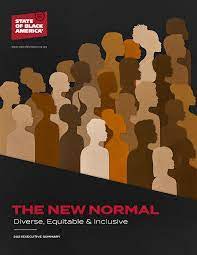While many talk of wanting a return to normal after COVID-19, the National Urban League (NUL), one of the nation’s oldest civil rights organizations, is advocating for a “new normal,” one that is more inclusive and equitable than before coronavirus.
Its recently released annual report, The State of Black America, lays out “three pandemics” that devastated communities of color in 2020-21: racial inequity in the economy, health care, and public safety. Yet the report also outlines ways forward, including for higher education.
“The report is a call to action,” said NUL president Marc H. Morial in an interview with Diverse. “To take the momentum, the energy, the determination of 2020, which we saw in the streets, we saw in the suites, we saw in the ballot boxes, and convert that energy into an effort to attack structural and institutional racism for a new, inclusive normal.”
With research partners at the Brookings Institution, the Johns Hopkins Center for Health Equity, and the Center for Policing, NUL’s publicly available report analyzes how COVID-19, police violence, and an economic crisis amplified underlying structural racism.
The report’s findings note that an ongoing racial wealth gap, alongside steep housing costs and high unemployment, left Black Americans especially vulnerable to the economic collapse in the wake of the pandemic.
“We’re trying to undo about 400 years of slavery, segregation, and institutional racism, or what I call Jimmy Crow,” said Morial, the former mayor of New Orleans. “We had Jim, then we had James [Crow]. James was sophisticated. He pretended not to be racist. But today we have Jimmy. Jimmy tries to stage coups at the Capitol. Jimmy thinks equality is a zero-sum game. He looks at a Black person with a job and thinks he got it over a more qualified white person. He doesn’t understand the universality of rights. Jimmy is as bad as James if not worse.”
Among proposed solutions to the racial wealth gap, an essay in the full report argues student debt should be cancelled. Colleges and universities, once the great equalizers, “have failed to live up to their promise for too many graduates,” wrote Ashley Harrington and Wade Henderson, the essay’s authors. 





















